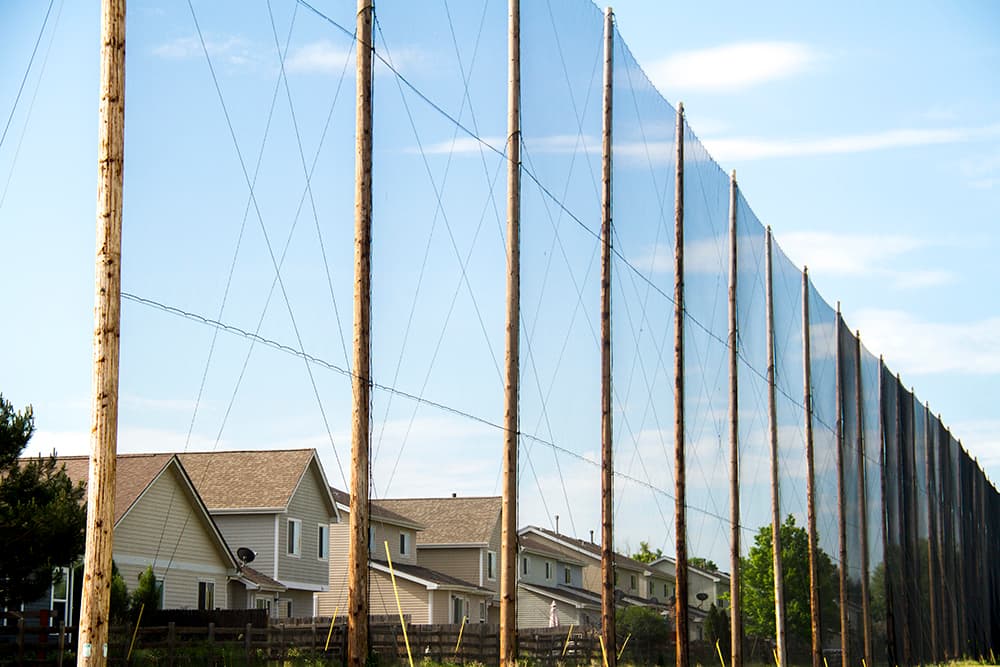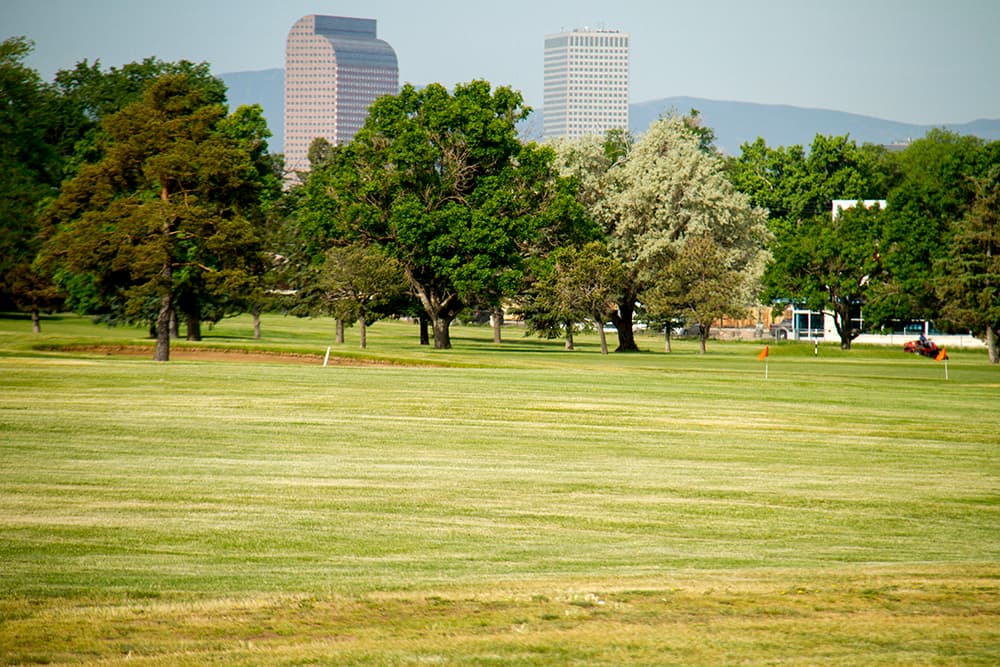
The city of Denver is preparing to purchase the 155-acre Park Hill Golf Club, which sits on land controlled by the nonprofit Clayton Early Learning in northeastern Denver.
The proposed deal, which would require the approval of the Denver City Council, would have Denver pay $20.5 million over the course of 30 years for the property.
While no plans for the future use of the land have been announced, this deal would likely mark the end of its long tenure as a golf course.
The nonprofit has been holding a "community visioning" process for about a year, and it reportedly found that few people from the surrounding neighborhood actually use the golf course. Instead, people have been asking for affordable housing, grocery stores, retail and parkland, according to Charlotte Brantley, CEO and president of Clayton.
Under this deal, though, the city would ultimately make the decision about what happens on the land -- and that wouldn't happen until after the council has agreed to buy the place.
"The agreement contemplates really a full spectrum of possibilities," ranging from open space to "full development," said Evan Dreyer, deputy chief of staff for Mayor Michael Hancock. The likely outcome is somewhere in between, he said. Either way, it's likely to anger open-space advocates who have called on the city to preserve the largely undeveloped land.
Dreyer described the arrangement as a way to ensure that the nonprofit, which has a century-long history in Denver, will continue its mission of supporting children from low-income families. It's also a rare opportunity for the city to guide what happens on a huge swath of open land in central Denver, he said.
"It's got historic uniqueness," Dreyer said of the land, which once belonged to early Denver philanthropist Henry Clayton. "There are not a lot of those left."
Clayton, meanwhile, wants to use the deal to build a fund of about $24 million, which could eventually provide about $1 million per year in crucial "flexible funding," according to Brantley. Clayton currently makes $700,000 a year from Arcis Golf, the private operator of the course, and Brantley has said that Arcis is unlikely to renew its lease at the end of 2018.
Denver would only commit to paying $20.5 million over 30 years under this arrangement, not $24 million, but Clayton also would get up to $3.5 million more if the land is resold to developers or others. Either way, the city will help Clayton get the revenue it's seeking now, according to Dreyer.
And that money is increasingly important to the nonprofit, Brantley said, in an environment where federal funding for educational nonprofits is far from guaranteed.
"We intend to be doing this for another 100 years," Brantley said.

The first $10 million for the city's purchase would come from the Platte to Park Hill flood control project's budet. The city has been talking about using part of the land for flood control for about six years, according to Brantley.
The final deal also would require approval by Clayton's board of trustees and a probate court. "It was about us, the community and the kids that we serve here," Brantley said.
All 13 members of the Denver City Council have been "positive" in conversations about the deal, but that does not guarantee 13 "yes" votes, according to Dreyer. They would have to approve not just the purchase the land, but also any future possibility of its development.
If the city's elected leaders approve, Denver would buy 80 acres of the land near Park Hill early in 2019 for $10 million. The city would also begin to lease the remaining 75 acres for $350,000 a year; after 30 years, the 75 acres would officially belong to the city government.
Clayton also has the option of selling to someone else besides the city -- but that seems pretty unlikely, thanks to the land's long and convoluted legal history.
The nonprofit agreed back in the 1990s that it would not develop the land; in exchange, the city paid the nonprofit $2 million. Only the city can undo that restriction. Additionally, the land is only zoned for use as open space, which only the city can change
"Developers are interested in purchasing land that they're pretty sure has a pretty clear path toward rezoning," Brantley said.
So, basically, it's not very attractive to developers right now. But it might be once the city is in control and starts to outline what it wants to see on this historic piece of property.
"We certainly have to justify to the city and the citizens that the investment is ... a market value investment. That is a difficult one in this case, because we have a property that has development opportunity in the future, and definitely developer interest, but it has these restrictions on it today," said assistant city attorney John McGrath.
"Projecting what exactly the market value for an asset like that is difficult to do, but we think that we've struck a balance here that recognizes that potential, but also limits the city's commitment to a financial investment."
Should the council approve the deal, it will set the stage for another debate. While affordable housing is in hot demand, the council already has heard demands that the land be preserved as open space -- and this deal makes no promises about what will become of the Park Hill Golf Club.
Correction: This story briefly referred to "City Park" golf course in one instance. That one already belongs to the city.










